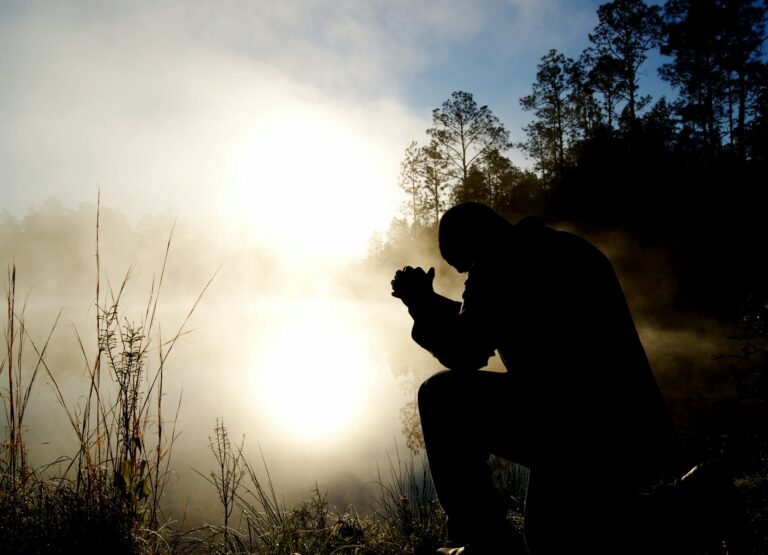Christians are viewed today as being the most closed-minded of people. They don’t endorse uninhibited sexual expression or even uninhibited self expression. Sexual predation, ‘monogamous’ fornication, polygamy and gender fluidity are liberties which Christians are bound to reject.
But they have other liberties which they cherish for themselves and others. Christians believe that the highest good is only known through faith in Jesus Christ, who is the Lord God. If it is by faith only, then it is an interior persuasion of mind that cannot be genuine if it is coerced. In other words, external pressures can’t produce this true interior belief. The New Testament spends a lot of time examining and rejecting claims of interior belief that are based on outside pressures or pursuits.
Jesus challenged the compelled speech of the hypocritical Pharisees when he condemned their tricky “swear by the altar, not the gold of the altar” gambit (see Matthew 23:16-22). The Pharisees wanted certain language to be binding on others when it suited. But they didn’t want to be bound by the same standard if they wanted to squirm away from accountability. Jesus condemns this tyrrany of special talk.
To the Galatians, Paul says that the pressure of religio-cultural norms doesn’t amount to anything if you believe in Jesus. He said, “For neither circumcision counts for anything, nor uncircumcision, but a new creation” (Galatians 6:15). Paul’s letter is a polemic against coerced external religion.
So is the Christian bound or free? The statement attributed to Luther by Bainton and popularized in movies is dramatic, “my conscience is captive to the Word of God.” That gets at the idea. For the Protestant, their is no external force that can change one’s mind unless it is through the persuasion of the Holy Scriptures and the Holy Spirit. The Christian is both both bound and free, but not in the ways other religious people are.
Doesn’t this make all Christians ‘fundamentalists’ in the way the term is broadly used today? Well, yes. There is an interior belief that permits and prohibits according to our conscience and informed by the Bible.
Our Muslim neighbours may claim the same. Their belief in the statutes of the Koran direct their actions to counter-cultural effect. In so far as their consciences are captive to the Koran, they are fundamentalists.
What about the Nones? The Nones are those who profess no religion, but fancy themselves as spiritual. Are they the only non-fundamentalists in a world full of them? National media may portray things that way, but the Nones are as fundamentalist as anyone. They have passionate beliefs about gender fluidity, or the priority of popular forms of folk science over supernaturalism, or the near advent of a climate apocalypse, or the survival of contributing human beings over unborn or elderly non-contributing ones.
All of these beliefs lack a common source text like the Koran or the Book of Mormon or the Torah. But they are believed with the fundamental vigour of any commercial grade zealot.The Nones can be just as passionate in social media pulpits as any religious fundamentalist.
So what about the question “Shall the Fundamentalists Win?” That was the one asked in 1922 by the modernist Protestant Henry Emerson Fosdick. He was referring to the Fundamentalist/Modernist divide happening in North American churches.
Today, everyone is moving toward greater fundamentalism. That is they are moving toward being bound in conscience by their interior beliefs. Yet only Christianity encourages open examination of those beliefs. At the critical point of Christian truthfulness, the angel’s invitation stands, “He is not here, for he has risen, as he said. Come, see the place where he lay” (Matthew 28:6). Christian faith is a constant testing of beliefs to see if they are true. It is concerned not with the advancement of a socio-political Christendom, but with the advancement of the truth, as Francis Schaeffer called it, “true truth.”
So when talking heads decry their opponents’ ‘fundamentalism’ be aware that it takes one to know one. Our churches and society are in a battle of beliefs which places all of our fundamentalisms out on the front lawn like a garage sale for all of our neighbours to see. They will look at the product of our fundamentalisms and see whether they produce what is good, beautiful and true. They may choose to believe lies out of convenience or superstitions out of fear, but the Christian gospel offers belief in a Saviour out of hope.
Make no mistake, we are all fundamentalists now. There is no more room for the soft know-nothing-ism of the past. We are rushing headlong into an epoch of rebels for every cause. Yet there can only be one truth worthy of martydom. As Revelation 2:11 says, “The one who conquers will not be hurt by the second death” (Revelation 2:11).
All others sacrifices will be offered for the pitiably sad lies of our age. Like most garage sales, the world’s fundamentalisms will be merely a collection of trinkets and furnishings long since broken and worthless.
















